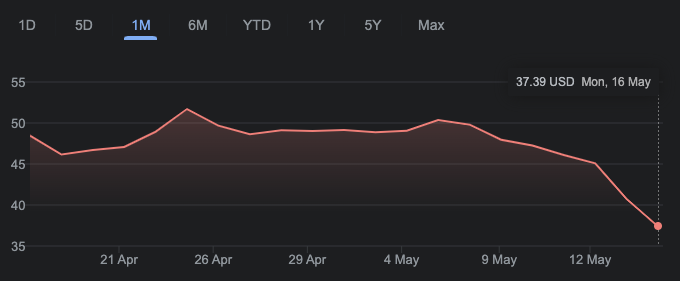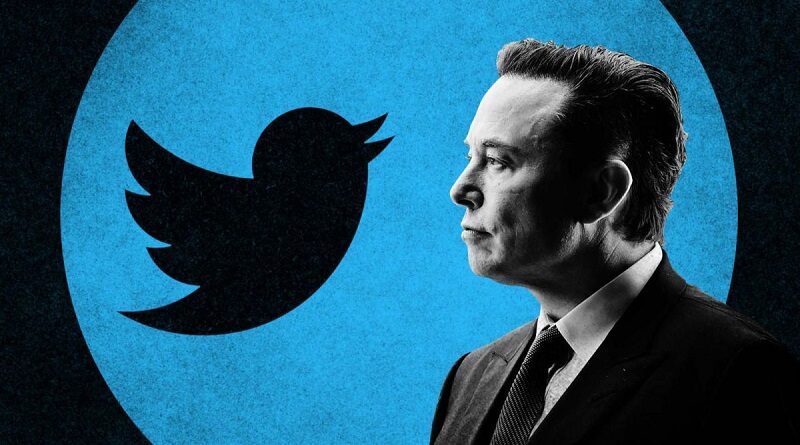Twitter Acquisition: Elon Musk is committed to the deal, but not to the deal size
The Twitter acquisition saga is becoming more interesting with each passing day as Elon Musk is not shying away from making statements that could put the deal in jeopardy.
Elon left people stunned on Friday after declaring the deal is ‘on hold’. However, soon he realized that the move had hit back as internet users didn’t find his argument behind putting the deal on hold much convincing. Within a few hours, he reacted with a clarification that despite putting the Twitter acquisition deal on hold, he is still committed to the acquisition. Alas, it was too late by then, the damages were done. Both, Tesla and Twitter stocks declined within a few hours of the market opening up.
Musk, who is well known for his finicky nature, left the market pundits guessing the real reasons behind his decision to stall the Twitter acquisition deal. Many people thought that Mush who already dominates Twitter doesn’t see Twitter as a lucrative business proposition, hence wanted to back off from the deal by cherry-picking lame excuses such as fake accounts on Twitter. However, analysts. the latest tweet from Musk has confirmed how accurate there were.
During the Miami Press conference today, Musk has openly hinted that he is juggling the idea of renegotiation of the Twitter deal, saying a viable deal at a “lower price wouldn’t be out of the question.”
The Twitter stock price fell another 8.1% on NYSE. The stock price of Twitter has fallen 22% since Elon decided to put the Twitter buyout deal on hold.
It all started with Twitter publicly disclosing the percentage of spam & bots accounts on Twitter, which caught the attention of Musk.
While Twitter claimed that spam & bot accounts account for less than 5% of its total monetizable user base, Elon believes that fake accounts could be responsible for a 20% decline in Twitter’s monetizable accounts. He also emphasized the fact that his estimation was on the lower end only, and he asked rhetorically if it could be as high as 90%.
Currently what I’m being told is that there’s just no way to know the number of bots,It’s like, as unknowable as the human soul.” Elon Musk,CEO of Tesla
Twitter declined to comment on Musk’s statement.
In the absence of data related to Life Time Value (LTV) of Twitter users, it’s difficult to find the accurate financial impact of fake accounts on Twitter’s revenue. However, factoring the last year’s revenue of the micro-blogging platform could help us get some idea of the possible damages.
Twitter revenue in fiscal 2021 reached $5.07 billion. The company’s reliance on advertising could be well understood from the fact that 89% of the revenue came from ads. Twitter has 229 million monetizable users on its platform. It’s important to understand that unlike Facebook or LinkedIn Twitter doesn’t factor ‘active users’ in its reports. Users that access Twitter directly from its website, app, or through the platforms where Twitter can display ads are called ‘monetizable users’.
Factoring that 5% of users are spam or bots as per Twitter’s official claim – it will have a direct impact on the company’s revenue in a long run. Musk, on the other hand, has put Twitter’s estimation of fake accounts under the cloud now.
Elon decided to conduct his own analysis of Twitter’s user base on a sample of randomly selected 100 Twitter accounts. Later, Musk claimed that Twitter’s legal department called him shortly after to complain about breaching their non-disclosure agreements by publicly sharing the company’s methodology.
Parag Agrawal, Twitter’s CEO, disputed Musk’s claim in a Twitter thread. He offered further details about the company’s approach to spam accounts and provided more information. Agrawal stated thousands of Twitter accounts are screened manually during each quarter to determine which ones should be considered spam. However, he also emphasized the fact that due to various privacy concerns the process cannot be executed externally.
Agrawal stated that Twitter had shared an overview of the estimation process “with Elon a week before.” Musk responded to the CEO’s tweet thread first by asking why Twitter doesn’t just call users for verification.
Musk was speaking at the conference hosted by “All-In”, a podcast run by Chamath Palihapitiya and Jason Calacanis. The $7,500 per-person event was full, albeit journalists were not allowed to attend. Musk was present via videoconference at the Miami summit.

The billionaire, 50 years old now, began purchasing Twitter shares in January. On April 4, he disclosed a 9.2% share in the company. Twitter’s board approved Musk’s $44 billion offer to purchase the company, which Musk may make private. However, the deal is still months away and Twitter shares trade far below the offer price.
The fake accounts issue has become a sticking point in Twitter acquisition for Elon, wiping all gains that the stock made since Elon Musk revealed his stake in the social media platform.




